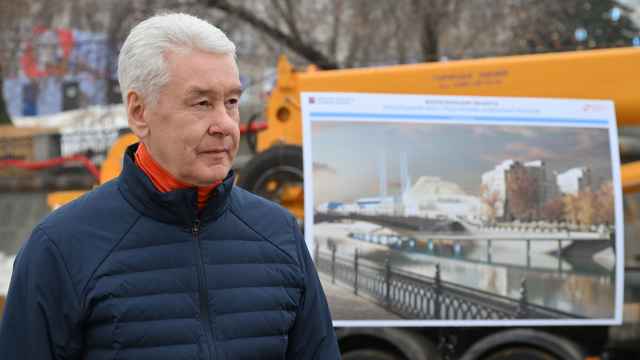The MT Conferences section did not involve the reporting or the editorial staff of The Moscow Times.

Florian Schneider
Managing Partner
Dentons
Two federal laws now in effect, No. 136-FZ and No. 485-FZ (the "Federal Laws"), allow Russian regional state authorities to redistribute the powers of local authorities between local and federal regional authorities. Among the powers that can be redistributed are those relating to town planning and land relations. No time limit on the redistribution is established. Pursuant to the Federal Laws, relevant regional laws have been enacted in some Russian regions.
According to such a regional law adopted by the Moscow Oblast, as of 1 January 2015, all of the most important issues relating to town-planning policies in the Moscow Oblast have been removed from local control and referred for five years to the Moscow Oblast Government: issuance of construction and commissioning permits; preparation, approval and amendment of general plans and land-use and development rules; preparation and approval of land planning documentation, and a range of other powers. Similar amendments have entered into force in other Russian regions: Leningrad, Nizhny Novgorod, Tyumen and other oblasts.
Before the entry into force of this regional law, all of the above powers were exercised by local authorities of the respective municipal entities. Note that town-planning acts adopted by local authorities prior to 1 January 2015 remain in force until duly amended or repealed or until they expire.
Powers to manage land in non-delineated state ownership have also undergone substantial change. According to the new version of the Land Code, which entered into force on 1 March 2015, when rules for land use and the development of settlements have been approved, land plots in non-delineated state ownership are managed by urban and rural settlements, not by municipal districts. City districts will continue managing land in non-delineated state ownership located within their territory.

Julia Lakhnova
Associate
Dentons
The new Land Code makes provision for situations where the process of acquiring a land plot began before 1 March 2015, but is completed after the entry into force of the Land Code's new provisions. According to the Land Code, if a municipal district commenced the process of allocating a land plot before 1 March 2015, but as of 1 March 2015, the land plot is, by operation of law, managed by the urban settlement, the allocation decision will still be made by the municipal district.
At the same time, the federal laws allow Russian federal regions to enact laws redistributing powers to manage non-delineated land between local and state authorities of the relevant region.
For instance, the Moscow Oblast law mentioned above provides that powers to manage land plots to which ownership is non-delineated remain with the local authorities of municipal districts and city districts for one year. According to the Moscow Oblast government's opinion, "Because the powers associated with land relations are for local governments a very significant lever for addressing issues of local importance, the region is not taking these powers at this stage. However, if a municipal entity fails to work productively and achieve its objectives (such as the problem of misallocation of land plots, failure to collect rents, and so on), it will be necessary to take away the power to manage non-delineated lands and give it to the region."
It should be noted the trend in the redistribution of powers to manage land plots to which state ownership is non-delineated is nevertheless toward transferring such powers of local authorities to the executive authorities of Russian federal regions (for example, the Tula and Tyumen oblasts).
Some experts believe that the need for a redistribution of powers is long overdue. By adopting the Federal Laws, the Russian Government aims to develop a comprehensive approach to territorial development and also to strengthen control by the regions so that the relevant structures work more effectively. On the other hand, however, such an unexpected redistribution of powers may lead to delay in addressing critical land and town-planning issues at the local level. Because land and town-planning powers are inherently difficult to exercise, one opinion is that the regions do not intend to assume these powers entirely, but merely want to create conditions that make it possible to influence decision-making by municipalities on these issues. In any case, only time will tell how the redistribution of land and town-planning powers to RF executive authorities will help address long-standing issues in local governance.
The MT Conferences section did not involve the reporting or the editorial staff of The Moscow Times.
A Message from The Moscow Times:
Dear readers,
We are facing unprecedented challenges. Russia's Prosecutor General's Office has designated The Moscow Times as an "undesirable" organization, criminalizing our work and putting our staff at risk of prosecution. This follows our earlier unjust labeling as a "foreign agent."
These actions are direct attempts to silence independent journalism in Russia. The authorities claim our work "discredits the decisions of the Russian leadership." We see things differently: we strive to provide accurate, unbiased reporting on Russia.
We, the journalists of The Moscow Times, refuse to be silenced. But to continue our work, we need your help.
Your support, no matter how small, makes a world of difference. If you can, please support us monthly starting from just $2. It's quick to set up, and every contribution makes a significant impact.
By supporting The Moscow Times, you're defending open, independent journalism in the face of repression. Thank you for standing with us.
Remind me later.





